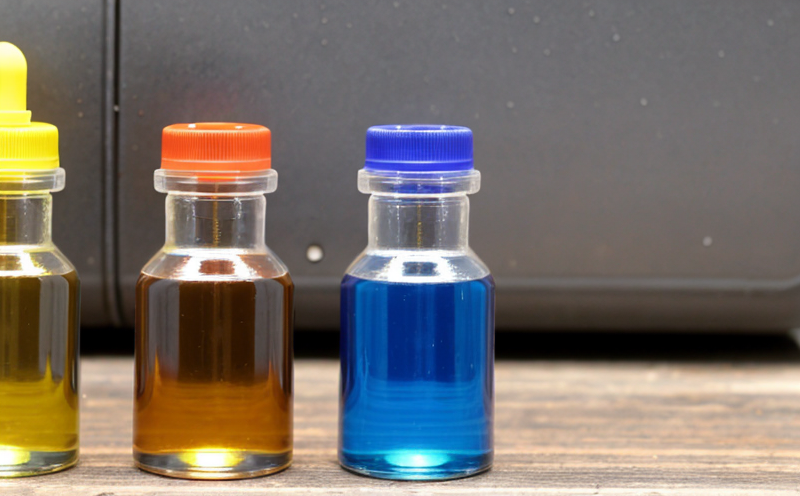Beer pH Testing
The importance of proper pH testing in beer production cannot be overstated. Beer is a complex mixture of malted grains, hops, yeast, and water, each with its unique acidity level. The pH value influences the stability, flavor profile, and overall quality of the final product. A slight deviation from ideal ranges can lead to off-flavors or spoilage, which are detrimental to both consumer satisfaction and business reputation.
During beer production, different stages require specific pH levels for optimal results:
- Mashing: The malted grains undergo enzymatic conversion into fermentable sugars. During this process, the mash temperature is carefully controlled along with the addition of water to maintain a suitable pH level.
- Hop Addition: Hops contribute bitterness and aroma but also influence the overall acidity. Proper timing and dosage are critical in achieving the desired balance.
- Fermentation: Yeast converts sugars into alcohol, producing carbon dioxide as a byproduct. The fermentation environment should be kept within acceptable pH limits to ensure healthy yeast growth and prevent contamination.
Accurate pH measurement during beer production is essential for quality control. This involves regular sampling and testing throughout the process. Instruments such as digital pH meters or portable pH testers are commonly used, often paired with standardized reference solutions (e.g., 0.1 M HCl or 0.1 M NaOH) to calibrate readings.
The target pH range for beer typically falls between 4.3 and 5.2. This narrow window ensures that the product remains stable, inhibiting undesirable microbial growth while enhancing flavor stability.
In summary, proper pH testing in beer production is crucial for maintaining consistency and ensuring product quality. By adhering to these guidelines, laboratories can provide reliable data that supports informed decisions from development through final bottling stages.
Why It Matters
The significance of pH levels in beer testing extends beyond just flavor and stability; it affects the entire supply chain. For quality managers, accurate pH monitoring helps avoid costly recalls due to off-flavors or spoilage. Compliance officers need reliable data to ensure adherence to industry standards like ISO 9001 and HACCP (Hazard Analysis and Critical Control Points).
R&D engineers rely on precise pH measurements during formulation trials to optimize recipes for maximum flavor potential while minimizing waste. Procurement teams benefit from consistent supplier performance metrics based on these test results.
Understanding the impact of pH on beer quality also helps in troubleshooting issues such as excessive foam formation or poor head retention. These factors are critical in maintaining brand reputation and customer satisfaction.
Moreover, pH testing aligns with global standards like ISO 9001 for process control and EN 25378-6 for alcohol beverages, ensuring that testing practices meet international benchmarks.
Eurolab Advantages
EuroLab's expertise in beer pH testing sets it apart from other laboratories. With years of experience serving the beverage industry, EuroLab offers comprehensive solutions tailored to your specific needs:
- Dedicated Laboratory Facilities: Our state-of-the-art facilities are equipped with advanced instrumentation and experienced technicians who specialize in this field.
- Precision Instruments: We use high-precision pH meters and other relevant equipment that comply with international standards like ISO 9001 to ensure accurate results.
- Standardized Procedures: Our testing protocols are based on industry best practices, including those outlined in EN 25378-6 for alcohol beverages.
- Comprehensive Reporting: Beyond simple pH values, our reports provide detailed insights into potential issues and recommendations for corrective actions.
EuroLab's commitment to excellence ensures that you receive the most accurate and actionable data possible. Whether you need routine monitoring or one-off testing, we are here to support your quality assurance efforts.
Quality and Reliability Assurance
- Calibration: Our pH meters undergo regular calibration using certified standards (e.g., 0.1 M HCl or 0.1 M NaOH) to ensure accuracy.
- Sample Handling: Proper sampling techniques are employed to minimize variability and ensure representative samples.
- Data Validation: All measurements undergo rigorous validation processes before final reports are issued.
- Auditing: Our procedures are subject to regular audits by independent bodies to maintain compliance with international standards.
These stringent measures guarantee that every pH test conducted at EuroLab adheres to the highest quality and reliability standards, providing you with confidence in our results.





